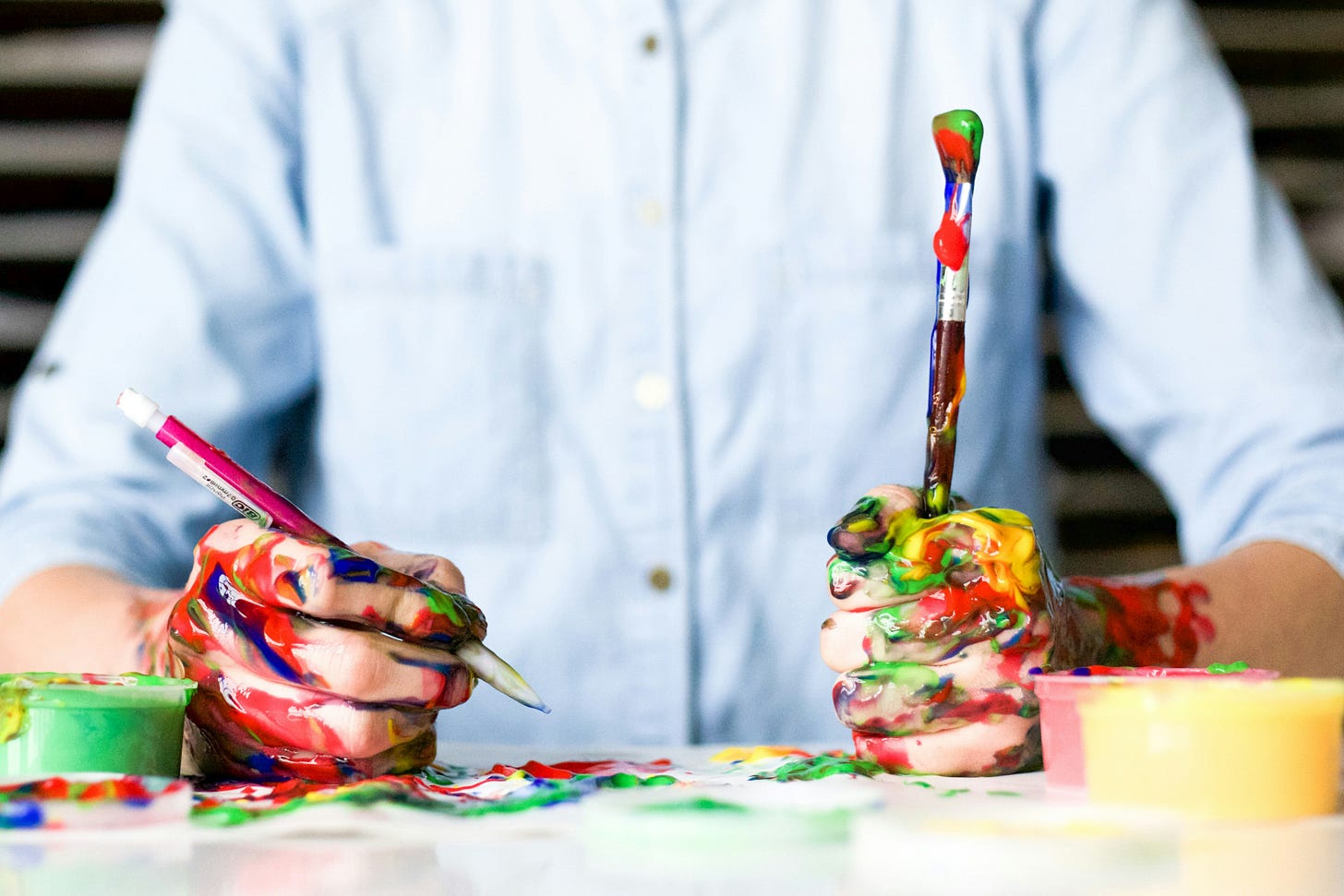One of the joys of parenting is getting to rewatch some of your favorite childhood movies.
I was recently overjoyed to rewatch Hook with my children, and there was a particular scene that struck me. It was the moment that Peter Pan began to remember who he was. After trading insults, he flicked his bare spoon at Rufio and to his surprise, a bright smattering of food smacked Rufio’s face. Everyone gasped.
Photo by Alice Dietrich on Unsplash
The children said, “You’re doing it.”
“Doing what?”
“Using your imagination, Peter.”
“You’re playing with us Peter. You are doing it.”
That instance of imaginative play—the flicking of an empty spoon—altered both Peter and his surroundings. A quick camera pan of the table revealed that it was now overflowing with a delicious feast. Then Peter began to change—he stood on the table, caught a sword in the air, and cut through a flying coconut. The mere instance of imaginative play renewed Peter’s will to save his children, as well as his capacity to do so. Being Peter Pan for three days helped Peter to become a better person—more patient, sympathetic, caring, and fun.
For a long time I put my own imagination on the shelf. In adulthood, I took an utilitarian view towards art and creativity. I put creating aside, believing that (much like Peter) more lucrative activities—like work and chores—were more important to prioritize. However, without realizing, I let my imagination fade almost entirely.
Don’t grow up too much. Whether you wish you could paint, sketch, dance, or even read more, here are a few ideas on how to do that.
You’ll make time for what you love. If you really want to create things, you will make time for it. Note what makes up the bulk of time in the day: work, school, chores, caregiving? Now note what you do in the “in-between times.” Consider how you might switch habits from scrolling or binge watching to something more imaginative and fun.
Get up early. Is it possible to work on a new hobby in the quiet of the morning? Could you spend the first 20 minutes of your morning knitting as the sun rises? Could you read a book while you eat breakfast? What creative practice might you include in your morning routine?
What do you do when the day is done? How do you spend your time after dinner? Do you numb out and binge watch that Netflix series for the second time? Do you scroll endlessly on social media, and end up feeling empty? Consider what you might get out of journaling for 30 minutes instead. Or, clear the kitchen table after dinner and commit to an hour of painting to some jazz music.
Play during the in-between times. Find the bits of the day where you might squeeze in some creativity. Could you find it relaxing to sketch on your lunch break? Bring a writing notebook to scribble in while you wait in line at the grocery store or sit in the parking lot. Could you listen to an audiobook while driving? What do you do while waiting in waiting rooms? Think about all the pockets of time that are too easily wasted. Consider how you might redeem them with creativity.
Make goals. One of the biggest stumbling blocks to making something is not knowing where to start. Get ahead of that and make a priory list first. What do you want to accomplish? Whether it’s drafting a chapter of a novel, or writing one poem per week, setting time to plan what you want to make will help you when it’s time to start.
Get accountability. Once you’ve decided what you will work on, get accountability. If people know about your new hobby or creative project, they will ask about it. This will help you prioritize your creative time. Consider joining a group—a knitting group, a writing group, a book club. Look for advertisements at your local library. Join a workshop. Making is simply more fun with people. Ignore those myths about the lonely artist, and do something within a community.
No one can argue that Peter isn’t a better person by the end of Hook. Let’s pursue this imaginative goodness by making it a habit through the regular exercise of creativity.



I was always one of those busy children with a bunch of projects and I fortunately didn’t give up on them when I grew up, but the amount of time I spent on them changed. In college, I spent several years working on the same blanket, but having one long project felt better than not having one at all.
I did give up on writing for over a decade. I wrote for fun as a child, but I felt that writing as an adult needed to be more official somehow. Since I didn’t get a degree in English or an MFA, I assumed that the ship had sailed. It took some time and listening to author interviews to realize that I was just as “qualified “ to write as they were. I took some of the ideas that came to me and started to write them down. I just needed to give myself permission to play with words again.
I need this reminder often! It’s so easy to let all the “must be dones” crowd out time for creatively.